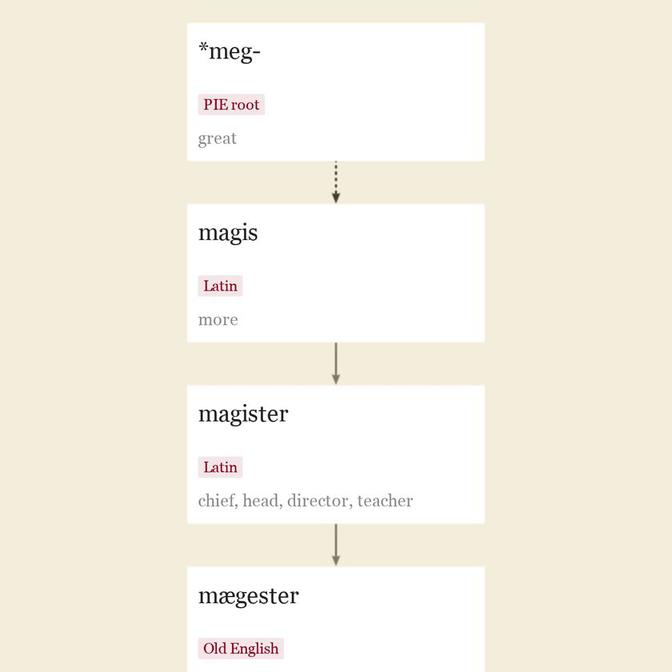remaster v.
also re-master, by 1967 of a recording, from re- "
Entries linking to remaster
word-forming element meaning "
Watkins (2000) describes this as a Latin combining form conceivably from Indo-European *wret-, metathetical variant of *wert- "
In earliest Latin the prefix became red- before vowels and h-, a form preserved in redact, redeem, redolent, redundant, redintegrate, and, in disguise, render (v.). In some English words from French and Italian re- appears as ra- and the following consonant is often doubled (see rally (v.1)).
The many meanings in the notion of "
Often merely intensive, and in many of the older borrowings from French and Latin the precise sense of re- is forgotten, lost in secondary senses, or weakened beyond recognition, so that it has no apparent semantic content (receive, recommend, recover, reduce, recreate, refer, religion, remain, request, require). There seem to have been more such words in Middle English than after, e.g. recomfort (v.) "
And, due to sound changes and accent shifts, re- sometimes entirely loses its identity as a prefix (rebel, relic, remnant, restive, rest (n.2) "
It was used from Middle English in forming words from Germanic as well as Latin elements (rebuild, refill, reset, rewrite), and was used so even in Old French (regret, regard, reward, etc.).
Prefixed to a word beginning with e, re- is separated by a hyphen, as re-establish, re-estate, re-edify, etc. ; or else the second e has a dieresis over it: as, reëstablish, reëmbark, etc. The hyphen is also sometimes used to bring out emphatically the sense of repetition or iteration : as, sung and re-sung. The dieresis is not used over other vowels than e when re is prefixed : thus, reinforce, reunite, reabolish. [Century Dictionary, 1895]

late Old English mægester "
From late 12c. as "
In the broadest sense, "
In academic sense "
Also used in Middle English of dominant women. From 1530s as "
As an adjective from late 12c. Master-key, one that will open ("
Master bedroom, "
The top floor was treated much the same as the two lower ones. Here the closet was made just a bit larger so as to allow for a bathtub, thus pushing the partition forward, making the front room less deep than the rooms below, yet paradoxically larger, because it takes in the whole front of the house. This is what is known in English advertisements as the "Master's bedroom." [The House Beautiful, June 1921]
updated on June 27, 2021